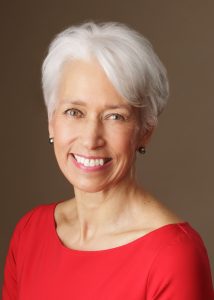
The University of Alabama’s ALLELE Lecture series will host Dr. Nina G. Jablonski on Friday, Sept. 15, for her lecture “Human Skin Color is an Evolutionary Adaptation, not a Racial Characteristic.” The lecture will be held in the Biology Building Auditorium at 7:30 p.m. and is free and open to the public.
An Evan Pugh University Professor of Anthropology at Pennsylvania State University, Jablonski is a leader in her field of biological anthropology. She focuses on the evolution of skin and skin theory as it applies to culture.
“In contrast to our relatives, our human skin is mostly naked, is potentially very sweaty, comes in a range of colors, and is something that we decorate lavishly to make socially meaningful statements,” Jablonski said. “Those differences are amazing, super interesting, and very worthy of study.”
Dr. Christopher Lynn, a professor of anthropology at UA, said Jablonski is the foremost expert in the world on the evolution of skin.
“She’s a dynamo in terms of this understudied but incredibly salient aspect of our culture and biology,” Lynn said.
In her research, Jablonski studies Old World primates, which include humans, to observe how humans adapted to the environment, particularly through skin. Currently, she is conducting research in China observing the relationship between vitamin D and skin pigmentation.
“I think it’s important to talk with people about the evolution of visible traits,” Jablonski said. “There’s considerable misunderstanding about how these traits came about and what they mean for us.”
Jablonski’s work is unique in that it crosses all four subfields of anthropology: archaeology, cultural anthropology, biological anthropology and linguistic anthropology. She also crosses over into multiple other disciplines, such as biology and race studies.
After the lecture, the Supe Store will have two of Jablonski’s books for sale for students and faculty to purchase: “Living Color: The Biological and Social Meaning of Skin” and “Skin Deep: A Natural History of Skin.”
“We want people, especially students, to come and get excited,” Lynn said. “The goal is to get people thinking about things that they don’t necessarily think about in regards to evolution.”
The lecture is part of the 2017-2018 ALLELE, or Alabama Lectures on Life’s Evolution, series, hosted by the Evolution Working Group. Composed of UA faculty, staff and students, the group spans several disciplines, allowing for interdepartmental discussion on a subject that connects them all.
“We are as cross-disciplinary as possible, so we welcome anyone who is interested in evolution,” Lynn said. “We try to invite speakers who represent that diversity as well, the goal of which is to highlight how broadly evolutionary theory can be applied.”
For more information on the 2017-2018 ALLELE series, visit evolution.ua.edu, or follow the series on Twitter or Facebook.
The ALLELE lecture series is part of UA’s College of Arts and Sciences, the University’s largest division and the largest liberal arts college in the state. Students from the College have won numerous national awards including Truman, Rhodes and Goldwater scholarships.
Contact
Stephanie Kirkland, College of Arts and Sciences, 205/348-8663
Source
Dr. Chris Lynn, Department of Anthropology, 205/348-4162
